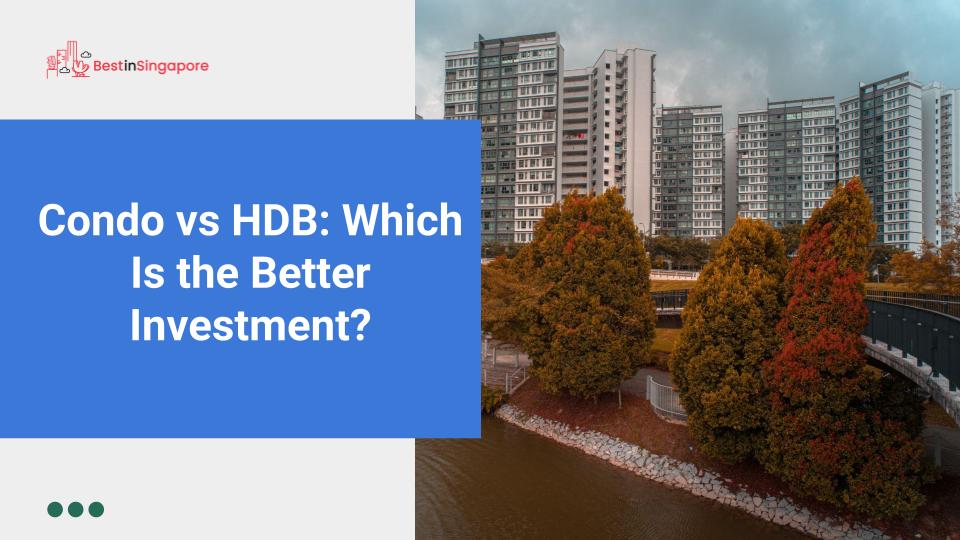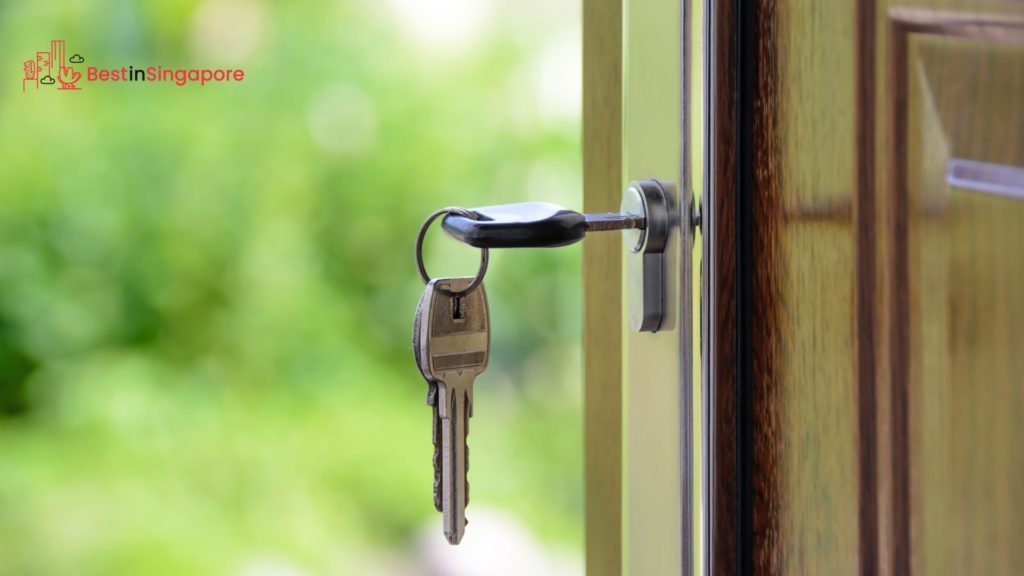Condo vs HDB: Which Is the Better Investment?
Despite the land scarcity issue in Singapore, you can still find several housing options here. Two of the most popular ones are the HDB flats and private condo units.
Simply put, HDB flats are the public housing options in Singapore. They’re developed and constructed by the Housing and Development Board (HDB), and Singaporean citizens and permanent residents can avail of subsidies to purchase them.
On the contrary, condo units are private housing. They’re located inside complex buildings with several on-site amenities that condo owners can access, such as swimming pools, and gyms.
Both HDB flats and condo units have their own lists of pros and cons, but if you’re planning to live in Singapore in the future, you probably have one question you want to be answered. Which is the better investment: a condo unit or an HDB flat?
What should I consider before buying property in Singapore?
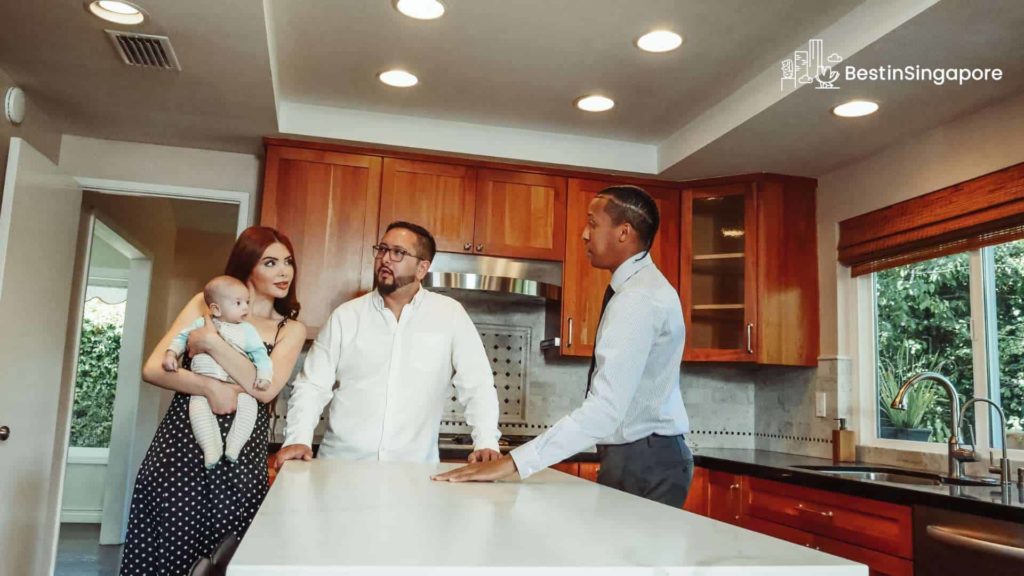
Before we compare and contrast the two housing options in Singapore, we first have to talk about your housing criteria.
Housing criteria depend from one person to another, but the following are some of the most common things to consider before buying property in Singapore:
- Size and the number of rooms
- Convenience and location
- On-site amenities
- Noise and crowding
Size and the Number of Rooms
Are you buying the condo or flat alone or with a partner? And if you’re planning to live with your loved ones, how many are you in the family?
The answers to this question will dictate the size of your ideal property. If you’re living by yourself or with your partner only, a small flat will do, but if you have parents and siblings or children, you’ll need something bigger.
Because of this, you need to consider size when shopping for condo units or HDB flats. Check out its size in square meters or feet, then see how many bedrooms are available.
Convenience and Location
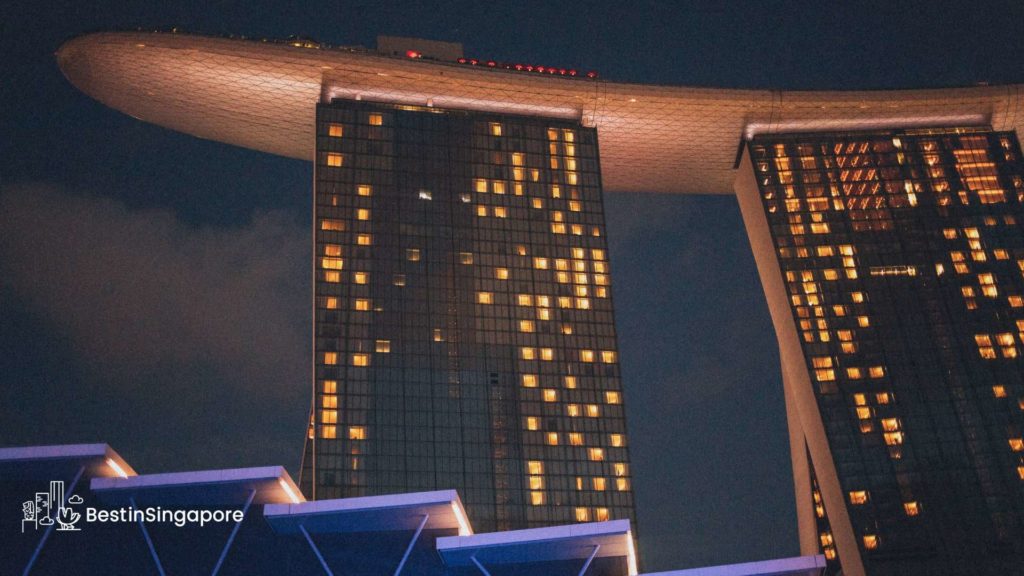
Sometimes people overlook a unit’s location when choosing a place to live, but you definitely shouldn’t. If anything, location is actually one of the key considerations in purchasing a property.
Essentially, a great location comes with convenience. Whatever you want or need to do, everything is within reach.
If you need to travel somewhere, the MRT station and bus stops are all nearby. And if you suddenly want to eat out late at night, you only have to take a short walk to your favorite restaurant.
In a way, a convenient location makes living easy for you. You also definitely won’t run out of exciting things to do.
On-Site Amenities
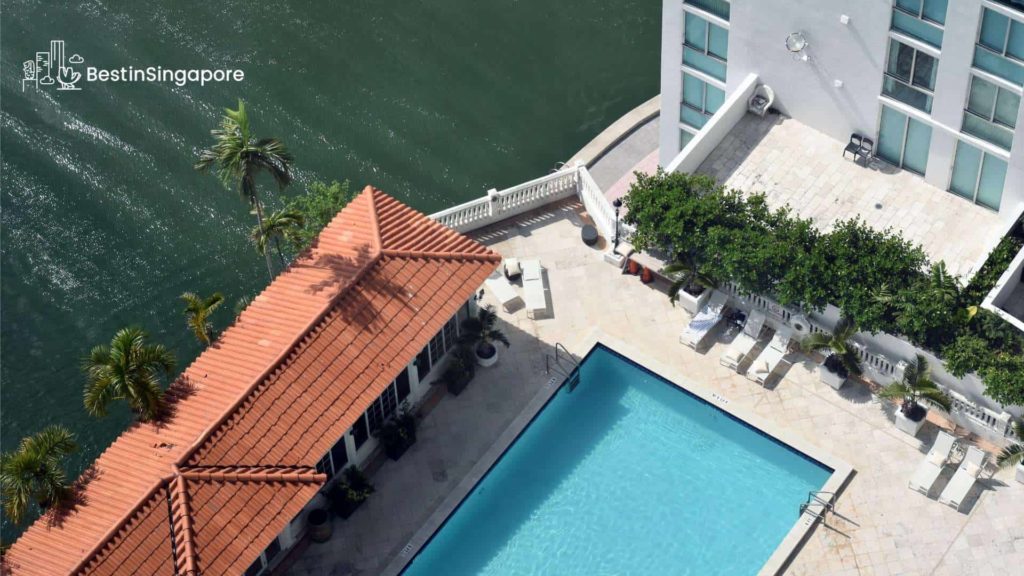
Speaking of exciting things to do, many buildings where condo units and HDB flats are located offer a variety of on-site amenities that residents are free to use. A few examples of these amenities are pools, gyms, playgrounds, and spas.
If you’re the kind of person who likes to swim to cool down or work out in the gym to stay in shape, then you definitely have to examine the amenities provided by a condominium or HDB property.
If you have a car or are planning to purchase a vehicle in the near future, another facility you’ll want a building to have is a car park.
On top of that, you should also examine how these amenities are kept. Do they look well taken care of, or do they look like no one has used them for your years?
Noise and Crowding

If you’re going to live in a unit or flat that’s part of a building with other occupants, then you’ll have to accept the fact that noise and crowding will be part of your day-to-day life.
However, if you really want to live as quiet and peaceful a life as possible, then one thing you can do is select a unit or flat in a smaller building. This is because smaller projects don’t have as many units as larger ones, so the noise levels will also be low.
That said, there’s also a strong likelihood that smaller condominiums or HDB properties don’t offer many facilities. So the time will come when you might have to determine which is more important for you: access to amenities or peace and quiet.
What are the differences between a condo and an HDB flat?
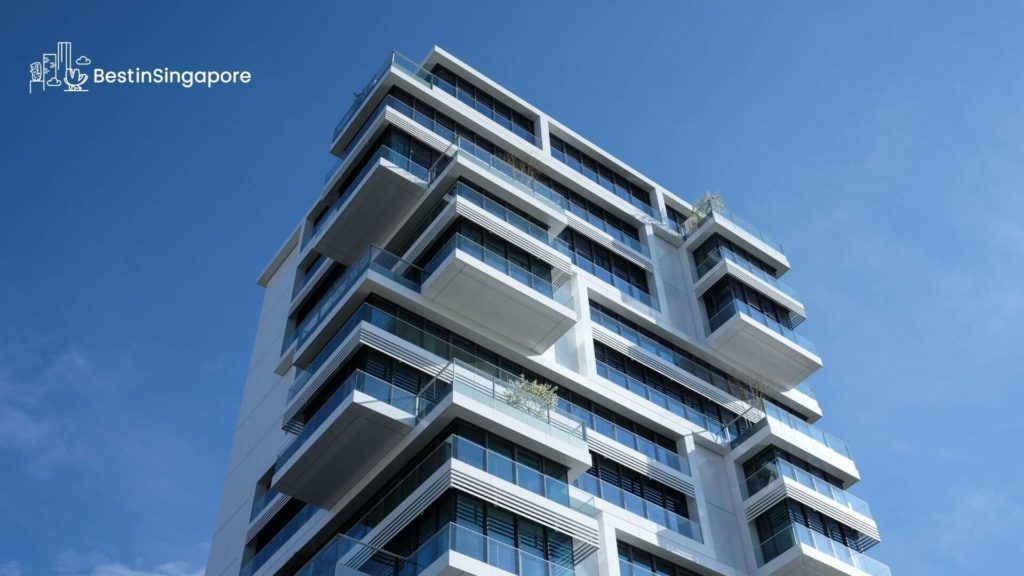
As mentioned earlier, the main difference between an HDB flat and a condo unit is that the former is public housing while the latter is private.
That said, there are still many differences between the two, and these can be found in the following:
- Eligibility
- Size
- Access to extra amenities
- Safety and privacy
- Pet-friendliness
- Price and financing
Eligibility
HDB Flats
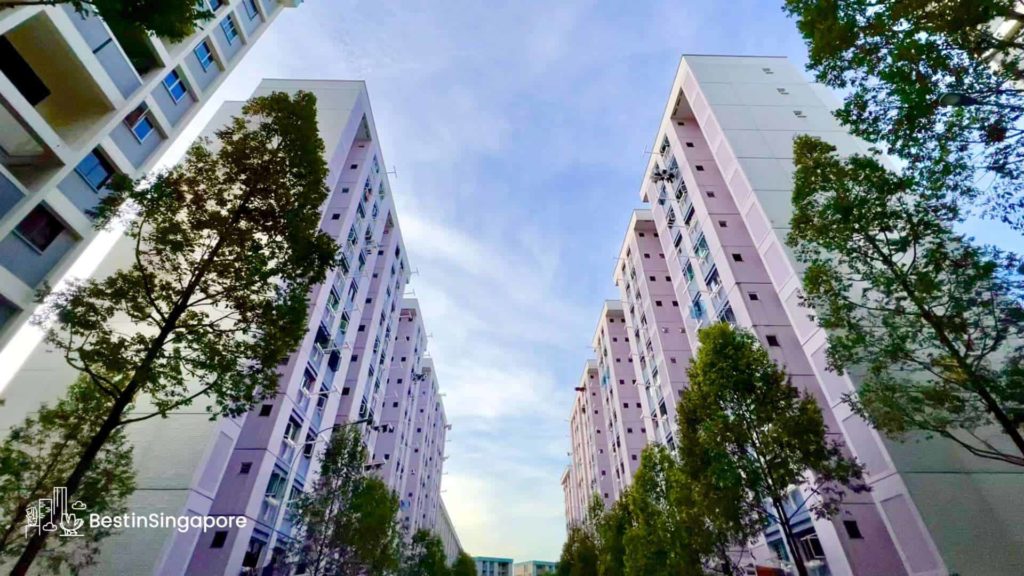
Between HDB flats and private condos, HDB properties are the ones with stricter eligibility rules. Here are the general eligibility criteria that you must meet in order to buy an HDB flat:
- You must be either a Singaporean citizen or a permanent resident. And if you’re applying with your family, at least one other member should be a citizen or permanent resident.
- You must be at least 21 years old (if you’re widowed and orphaned) or 35 (if unmarried and divorced).
- You shouldn’t own any other property locally or abroad. You also shouldn’t have disposed of any property within the past 30 months.
In addition to the general criteria, you should also take into account the various income ceilings, which will depend on the type of HDB property.
Private Condo Units
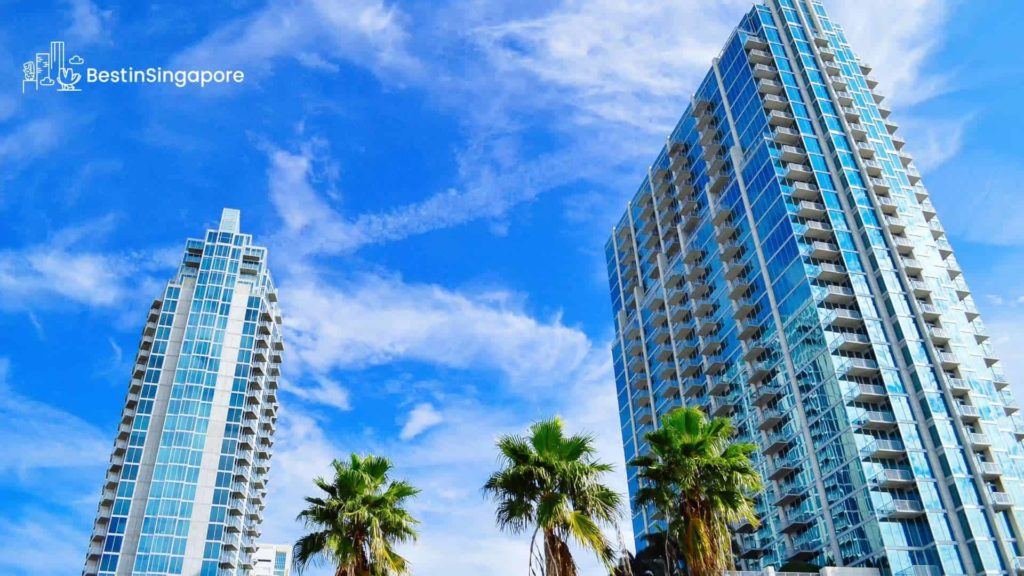
As you can see from the eligibility criteria for HDB flats above, you can see that there are many restrictions. You’ve also definitely noticed that only Singaporean citizens and permanent residents are mostly allowed to purchase HDB flats.
So what if you’re an expat in Singapore? How will you find housing here?
Luckily for you, private condo units exist in Singapore. And they don’t have as many eligibility restrictions as HDB flats.
The only thing you need to keep in mind when buying a private condo unit is that you need to be at least 21 years old. Other than that, you don’t really have any other hindrance standing in your way.
Size
HDB Flats
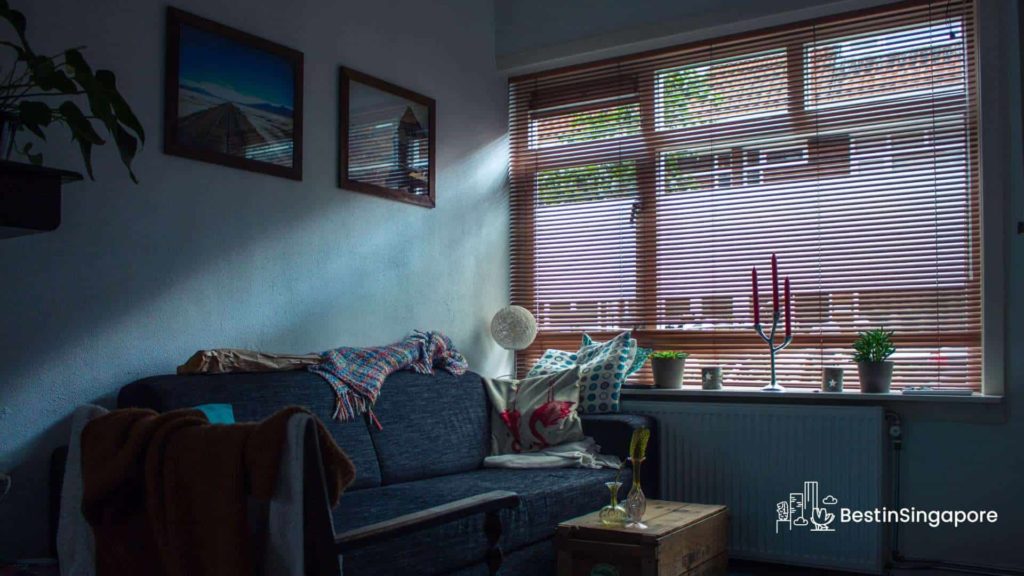
HDB flats come in a wide variety of types and sizes, so you have a lot of options to choose from. Take a look at this table which lists out some of the most common types of HDB flats and their average sizes.
Private Condo Units
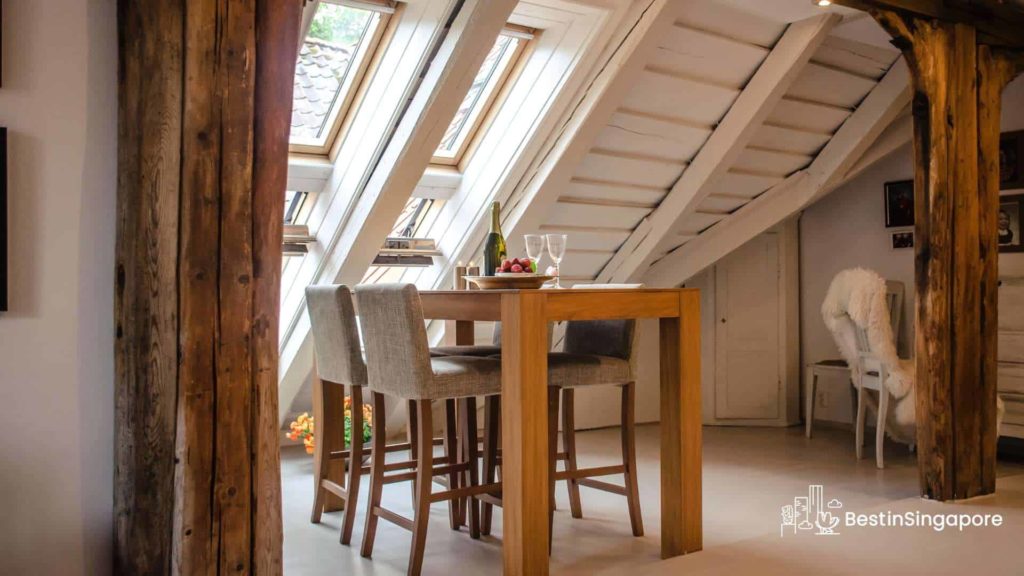
Just like HDB flats, private condo units have several different kinds with their own size ranges. Here’s a table that shows the different sizes of these condo types.
The interesting thing about private condos in Singapore is that reports have shown that the median size for new units has fluctuated throughout the years.
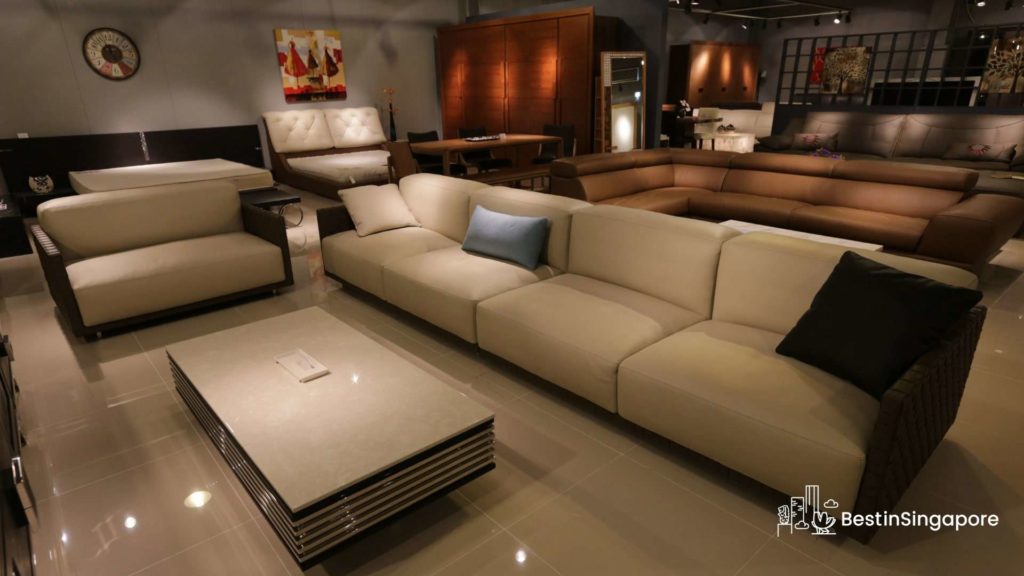
To get a look at how much the median size has changed, refer to this table, which compares the median size for both new condos and resale units throughout the years.
Even though the median size for condo units has been fluctuating, it doesn’t necessarily mean bad news.
According to Tricia Song, the Head of Research of Colliers International, newer homes are smaller, but they do feature more facilities, smarter features, and more efficient layouts.
Access to Extra Amenities
Private Condo Units
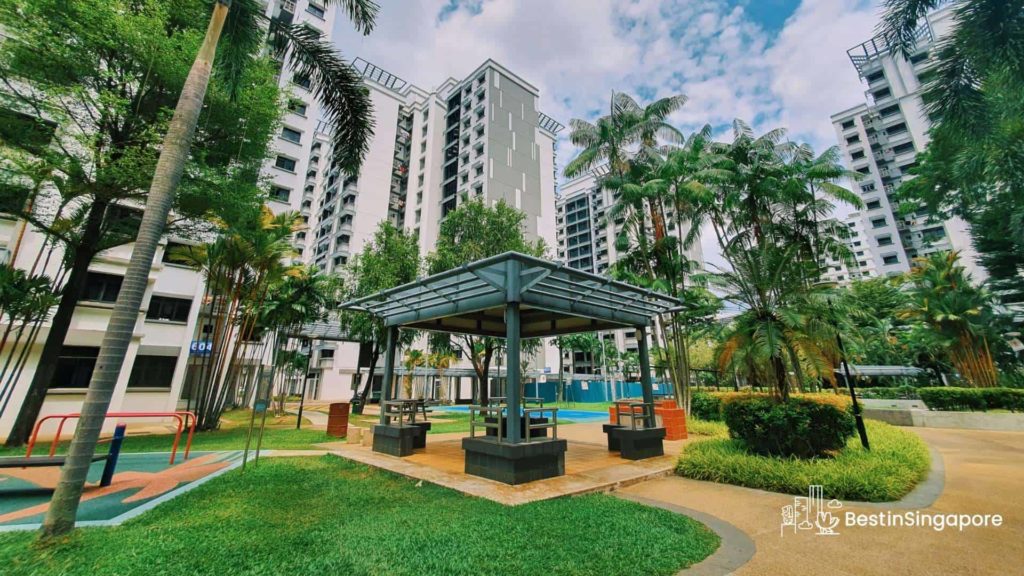
Access to extra amenities is actually one of the main selling points of private condo units.
Some of the regular facilities that you can find in any condominium include swimming pools, gyms, barbeque pits, and playgrounds. There will also be a tennis court if the building is considered a full facilities condo.
HDB Flats
HDB properties certainly don’t lack facilities, but they definitely don’t have as many facilities as condo units.
For example, while condo owners only have to go up or down the elevator to get to the pool, HDB residents might have to travel to the nearest swimming complexes just to take a dip in a pool.
That said, HDB buildings are widely known for their various mama shops. These shops have a wide array of products—from snacks and drinks to even fresh produce.
Safety and Privacy
Private Condo Units
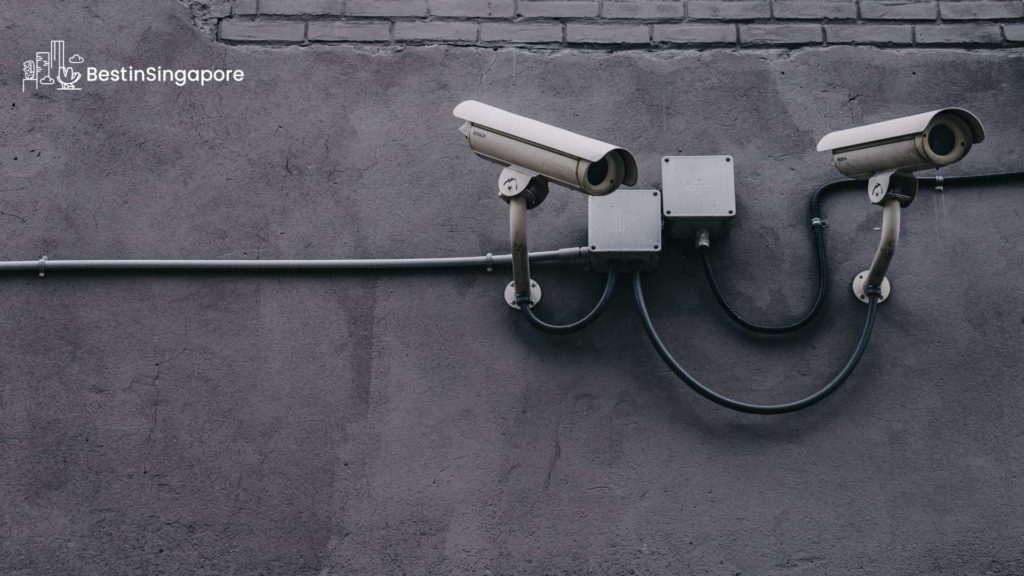
Considering that condo units and HDB flats are located inside the building with other units, it’s nearly impossible to have total peace and privacy. That said, condo units do provide a better sense of safety and privacy to the residents.
This is because one of the perks of living in a condominium is that there are security guards around the clock and security cameras monitor the premises. Walls and fences are also constructed to stop non-residents from breaking and entering.
Furthermore, many condo buildings have started to replace traditional keys with access cards. With all these safety measures, it’s just harder for someone to trespass on a condo unit these days.
HDB Flats
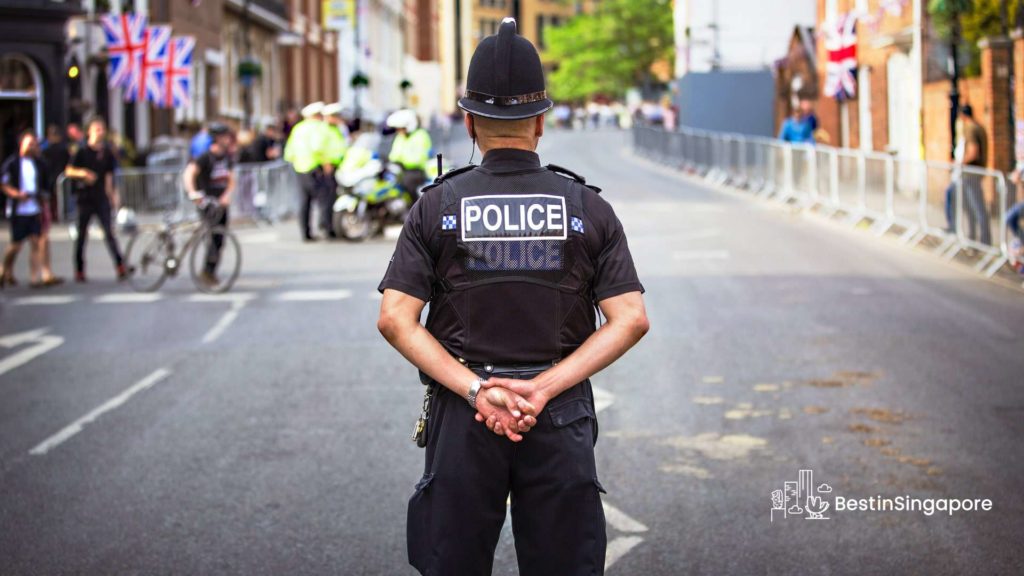
HDB properties definitely have some level of security: there are CCTV cameras scattered throughout, and police officers may patrol the area. That said, this level of security doesn’t compare to the one you can find in private condominiums.
Because of this, accidents and petty crimes do happen in HDB properties sometimes. In fact, in 2021, there was a 24% spike in local crime rates in Singapore, and about a third of knife-related incidents happened in public housing areas.
However, even though that’s the case, HDB has started to implement more security to its projects, so you can still find a flat in a building with security guards and other safety measures.
Pet-Friendliness
HDB Flats
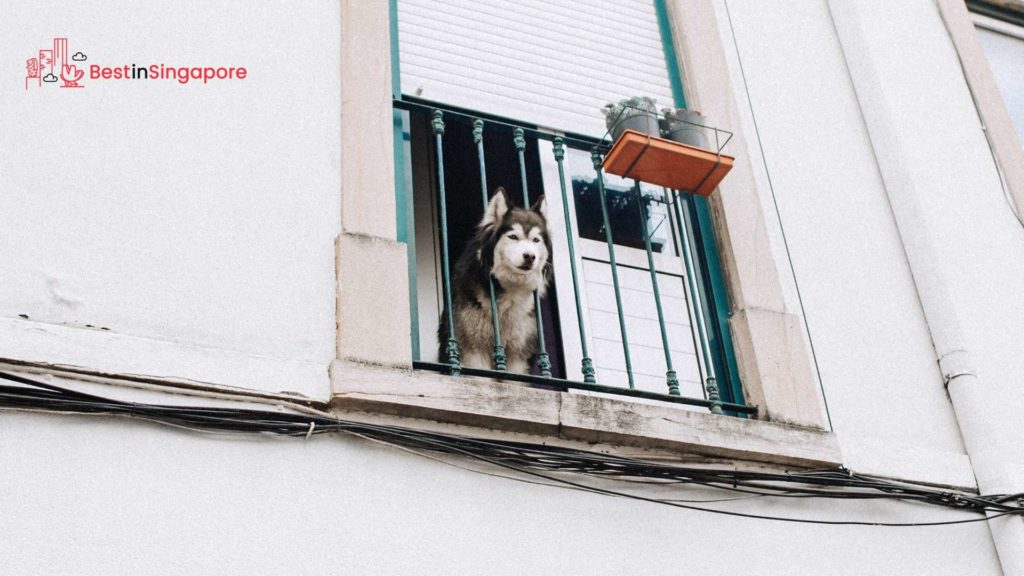
Generally speaking, pets are allowed in HDB flats, but there are definitely restrictions. The only pets allowed are dogs, rabbits, tortoises, fish, hamsters, and even some bird species.
Surprisingly enough, cats are prohibited in HDB flats, a rule that residents have protested against. HDB itself had a trial program where cat owners in Chong Pang kept their pets at home, but it was to no avail because cats are still illegal today.
Even dog owners aren’t safe either because only 62 dog breeds are allowed in your HDB home. So if you want your pet dog to live with you, you need to select from this approved list.
- Affenpinscher
- Chinese Imperial Chin
- Japanese Spitz
- Pug
- Tibetan Spaniel
- Australian Silky Terrier
- Chinese Temple Dog (classic or miniature)
- Lhasa Apso
- Poodle (miniature)
- Volpino Italiano
- Australian Terrier
- Coton de Tulear
- Little Lion Dog
- Schipperkee
- West Highland Terrier
- Bichon Frise
- Czech Terrier
- Lakeland Terrier
- Scottish Terrier
- Wire-Haired Fox Terrier
- Bohemian Terrier
- Dachshund (light or miniature)
- Maltese
- Sealyham Terrier
- Welsh Terrier
- Bolognese
- Dandie Dinmont Terrier
- Manchester Terrier
- Shetland Sheepdog
- Yorkshire Terrier
- Brussels Griffon
- English Toy Spaniel
- Miniature Pinscher
- Shih Tzu
- Bichon Havanese
- Griffon Belge
- Miniature Schnauzer
- Silky Terrier
- Border Terrier
- German Hunting Terrier
- Norfolk Terrier
- Small Continental Spaniel
- Boston Terrier (lightweight or middleweight)
- Griffon Brabancon
- Norwich Terrier
- Small English Terrier
- Cairn Terrier
- Hairless Dog
- Papillon
- Small Spitz
- Cavalier King Charles Spaniel
- Italian Greyhound
- Pekinese
- Smooth Fox Terrier
- Chihuahua
- Jack Russell Terrier
- Pomeranian
- Toy Fox Terrier
- Chinese Crested Dog
- Japanese Spaniel (chin)
- Poodle
- Toy Terrier
If you’re planning to adopt a dog with an approved breed, you don’t need to seek approval from HDB. So long as your pet is licensed by the NParks Animal and Veterinary Service, you’re good to go.
Private Condo Units
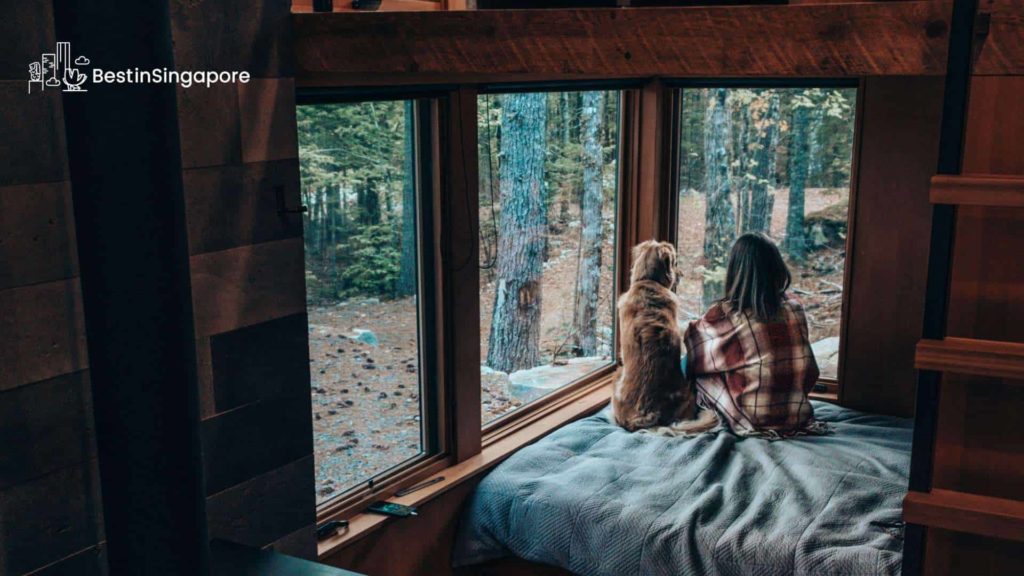
Just like HDB flats, private condo units are also generally pet-friendly, though restrictions will vary from one complex to another. That said, condos are not as strict as HDB flats, which is why pet owners tend to prefer them.
If you’re eyeing a condo unit, make sure to check out what their rules are regarding pets.
Price and Financing
HDB Flats

The price for an HDB flat depends on what type it is and its size. The average cost is usually around 532,768 SGD, but this can vary depending on the size.
To give you an idea of how much an HDB flat costs, take a look at this table.
Luckily, you don’t have to worry too much about the price. This is because HDB flats are eligible for government subsidies, which will drastically reduce the amount you have to pay when purchasing an HDB unit.
In particular, people take out HDB loans to purchase their new flats because HDB interest rates are very stable. It has remained at 2.6% since July 1999.
CPF housing grants are another subsidy used for purchasing HDB units.
People who are planning to purchase HDB units are also allowed to pay a lower downpayment.

Moreover, there are several purchasing schemes that you can use when buying an HDB flat. The following schemes are as follows:
Private Condo Units
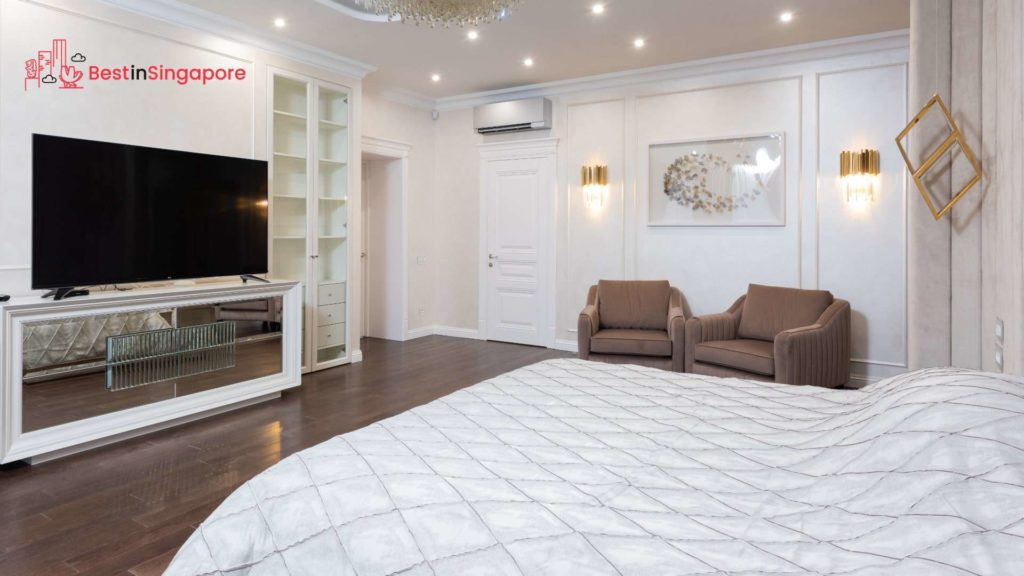
Unlike HDB flats, private condo units have higher price tags—usually in the millions. The average price is around 1,780,051 SGD.
Here’s a table that shows the average price of a new and resale condo depending on its location.
On top of the price you have to pay when you buy it, you might also have to pay maintenance fees for the upkeep of the on-site amenities. So you should factor that in when planning a budget for your future home.
Additionally, private condo units aren’t eligible for any government subsidies. Because of this, you’ll have to pay a higher downpayment, and if you do take out a housing loan, you’ll have to take the risk of interest rate fluctuations.
Should I buy a condo or HDB in Singapore?

There’s no one answer to the question of whether you should buy a condo unit or HDB flat in Singapore—simply because the answer depends on you. Specifically, it depends on your personal preferences, needs, and budget.
Here’s a summary of the primary differences between an HDB flat and a private condo unit.
You can use the data above to help you come to a decision. Ask yourself several crucial questions, such as:
- Are you a permanent resident, citizen, or expat? If you’re an expat, are you planning to apply for permanent residency or citizenship someday?
- Do you have pets? Or are you planning to have pets in the future?
- Who are you living with—your partner, friends, or family? How many are you in the group?
- Would having amenities within the building be beneficial to you? Or are you okay if the building you’re living in doesn’t have extra amenities?
- Do you want to live in a secure neighborhood?
- How do your finances look?
Can you afford to buy a condo without messing up your finances? Or would it be better to go with a cheaper HDB unit?
Are there alternatives to condo units and HDB flats?
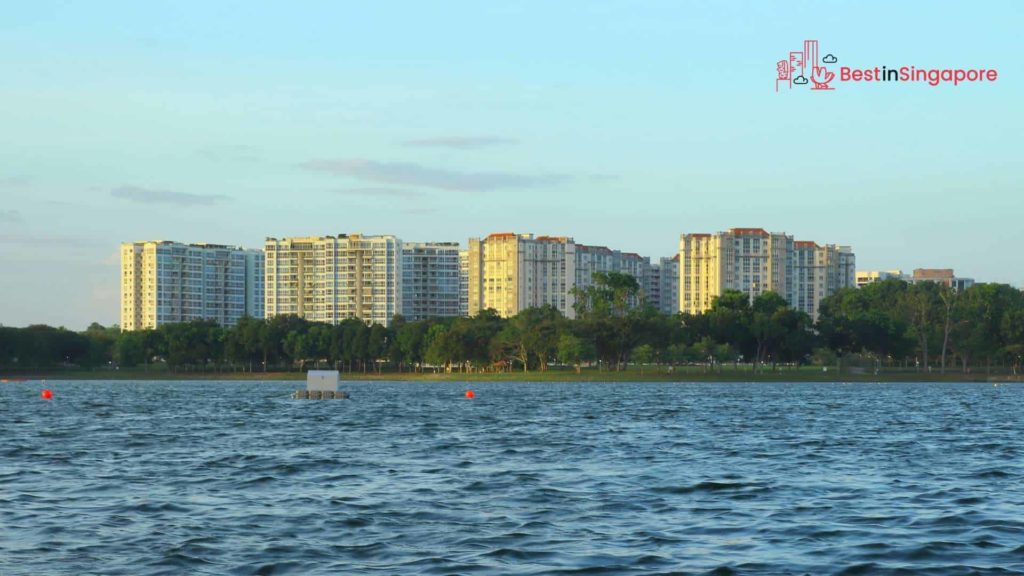
What if you don’t like HDB flats or private condo units? Luckily, you don’t have to worry much because there are alternatives to HDBs and condos, and these are executive condominiums and landed property.
Executive Condominiums (ECs)
Generally speaking, the executive condominium is a public and private housing hybrid. This is the housing choice meant for the “sandwich” class: aka the group of people whose salary exceeds the limit of HDB eligibility but still can’t afford private property.
What makes ECs unique is that they have on-site amenities like a private condo, but they’re also eligible for CPF housing grants like HDB flats. The households eligible for ECs are those with a monthly income of 16,000 SGD.
That said, ECs have their fair share of downsides as well. For one thing, they’re usually located on the outskirts of Singapore to keep the prices low, and for another, there aren’t that many EC launches every year.
Landed Property
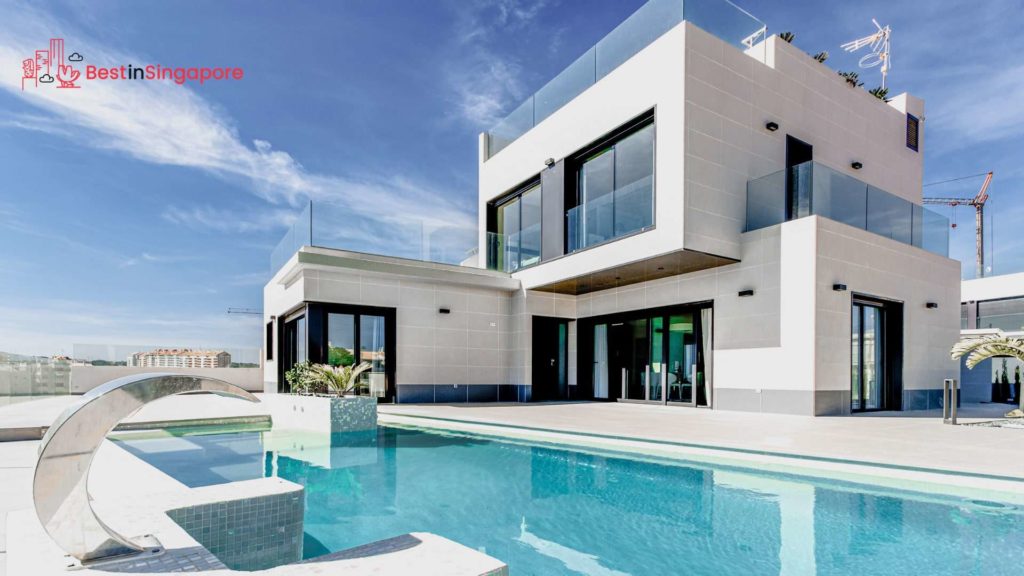
What if you have a really sizeable income and you can afford to purchase something more expensive than a private condo? If this is your case, then you might want to consider buying landed property instead.
Landed property is the ultimate symbol of wealth in Singapore, especially since this country suffers from a lack of land. With a landed property, you get not only a house but also the land, which you can use for pools, gardens, and other things.
As you would expect, landed properties are incredibly expensive—with price tags fetching as high as 120 million SGD. To give you a rough estimate of the usual prices, take a look at this table:
FAQs about Condos and HDB Flats in Singapore


